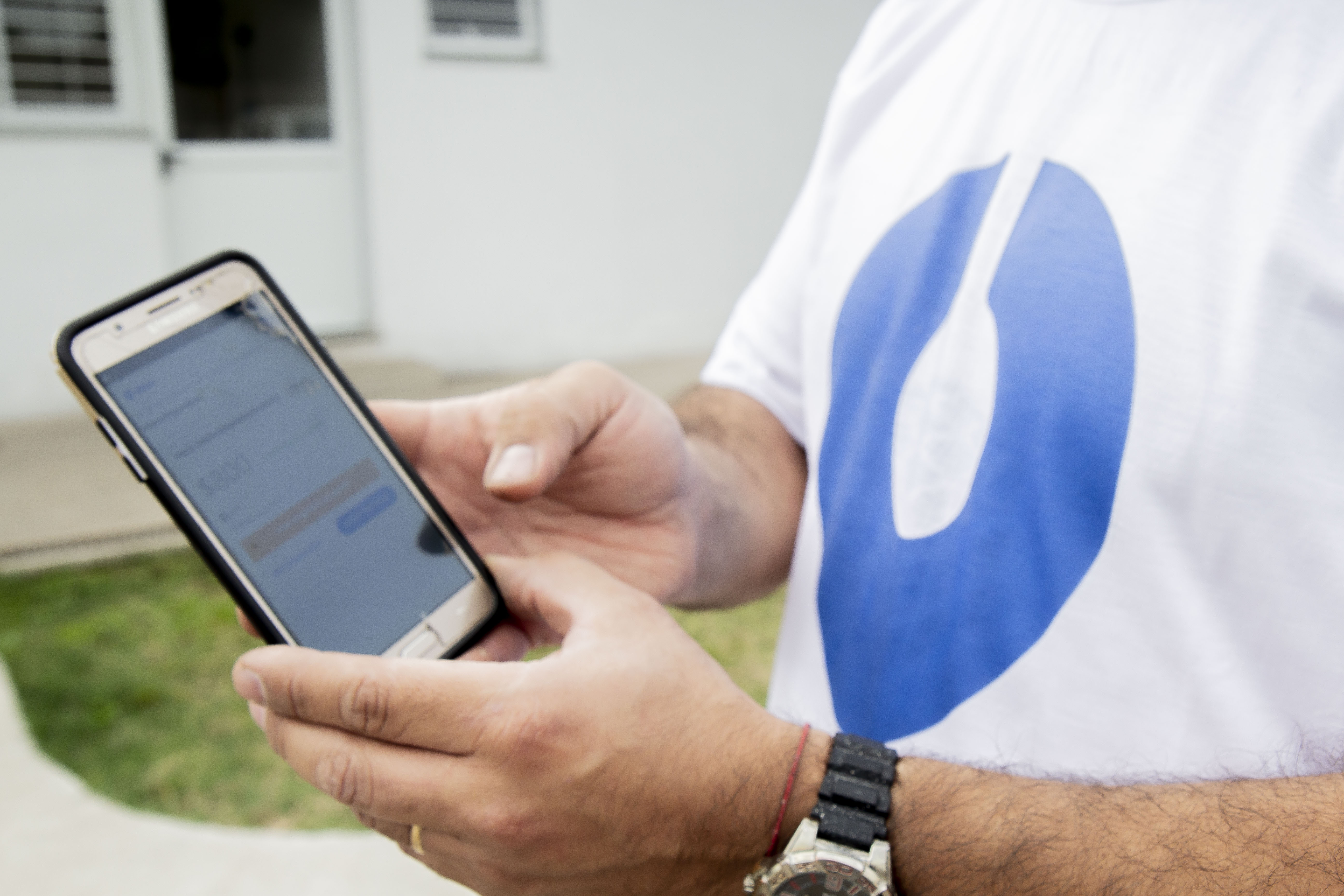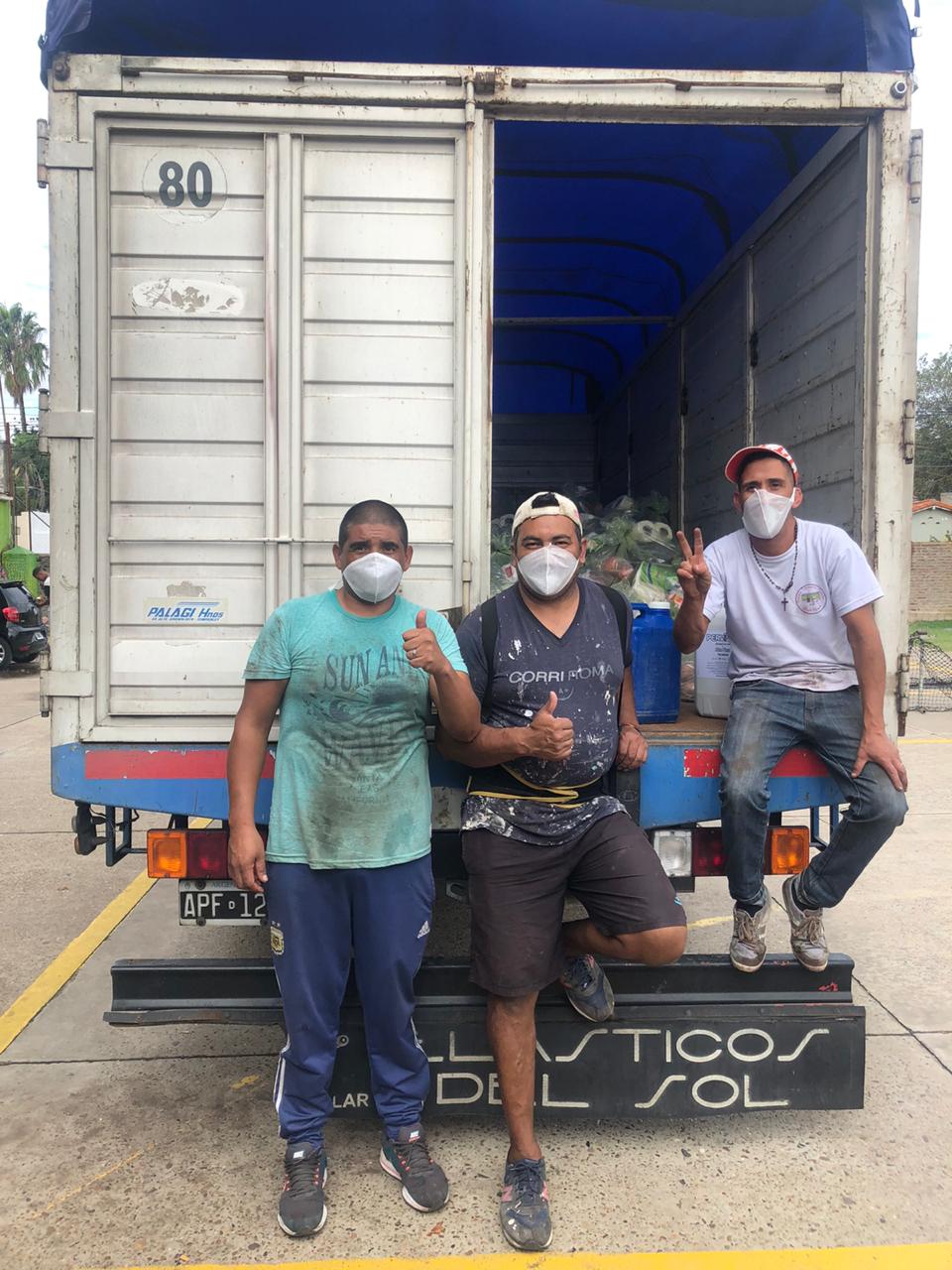Checking in with our epA 2019 winners – a blog series: Nilus

In this 11-part blog series, we will be checking in with our empowering people. Award (epA) 2019 winners to see what they’ve been up to since our most recent award ceremony in Cairo last July. Check out what’s new with Nilus!
Below is an interview with Ady Beitler, Co-founder and CEO of Nilus.
 Nilus’ digital marketplace is a user-friendly way to engage in the exchange of edible food to people who need it.
Nilus’ digital marketplace is a user-friendly way to engage in the exchange of edible food to people who need it.
Siemens Stiftung: Firstly, can you explain to your fellow empowering people. Network (epN) members and readers what you do, where you do it, and, most importantly, why?
Ady: We are a social enterprise that operates a digital marketplace of healthy food that would otherwise be wasted, and we offer it at low prices to community kitchens in low income neighborhoods. We are currently operational in Argentina and Puerto Rico, and in the process of expanding to Mexico and Uruguay. We do it because we believe deeply in the right that people have access to healthy food in a sustainable manner, as nutrition is a fundamental enabler of human development and the cornerstone of social equality.
Siemens Stiftung: More than half a year ago, you were a winner of the empowering people. Award 2019. What has/have been the major change(s) for your company and team since then? For you as an entrepreneur?
Ady: Since the epAward ceremony, a major change was the strategic shift from a platform purely based on food donations, to one where we buy and sell the food at low prices. This shift has allowed us to have access to significantly more food products, and therefore to increase our impact exponentially. In fact, since August 2019 – when we pivoted the model – the volume of food delivered to soup kitchens increased by 10% per month, and the number of beneficiaries increased by 25% per month. This produced a tectonic change in the way we approach the operation, as we’re now focused on financial sustainability as the bedrock of our impact. The more sustainable we are, the larger the volume of food we can deliver to low income families. And that’s what we’re all about. The biggest change for me, as an entrepreneur, was a by-product of this strategy shift. I changed from a social activist to the CEO of a food trading company; the only difference with any other food trading company in the world, is that we are focused on feeding low income people with the most nutritious food possible. I think that makes it twice as difficult.
 The delivery of pies is enough to bring a smile to anyone’s face.
The delivery of pies is enough to bring a smile to anyone’s face.
 Nilus is passionate about sustainably sourcing edible food ready for distribution to families in South America and Mexico.
Nilus is passionate about sustainably sourcing edible food ready for distribution to families in South America and Mexico.
Siemens Stiftung: After your participation in the award ceremony and the empowering people. Workshop, that focused on story telling for social entrepreneurs and peer coaching, have you made any changes to the way you operate? If so, what changes?
Ady: As I said, our shift in strategy began in August 2019, and in the following weeks we learned about the new method of execution as well as the storytelling. The epWorkshop couldn’t have been more timely and useful for us in this sense. We learned about the combination of passion and sustainability; about the drive that social projects always have, combined with the method and accuracy that sustainable operations require. We can’t be more thankful for the opportunity.
Siemens Stiftung: What has been your biggest success, personally or professionally, since then?
Ady: Our biggest success was to find a strategy that has the potential to be self-sustaining in the very short term (we estimate to break even in Q4 2021). It is both a personal and a professional accomplishment, by far the most important one in my career. I am what I do with my time. And I live a life of family and social service. To feel useful and, at the same time, have a reasonable expectation to stay afloat for the long run, feels like the blessing of a lifetime.
 Happy customers about to make use of their food delivery from Nilus.
Happy customers about to make use of their food delivery from Nilus.

Deliveries are still being made with the help of personal protective equipment.
Siemens Stiftung: What are you working on now? And what are your future plans?
Ady: Right now, we are working on improving our technology to become more efficient and impactful, while at the same time we are keeping up with the huge increase in demand that we experienced with the COVID-19 pandemic – which is accelerating our expansion plans beyond Argentina, to Mexico and Uruguay.
Siemens Stiftung: With your membership, in what way(s) do you hope to benefit from epN? And if applicable, how have you already gained from your connection to the ecosystem?
Ady: After epAward 2019, we entered a virtuous cycle of learning, endorsements and growth that has allowed us to significantly solidify our strategic footing. First and foremost, the experiences in Egypt and Colombia with the rest of the network members taught us valuable lessons in social entrepreneurship that made a mark in our strategy (the sustainability strategy being the most important one). In addition, Siemens Stiftung’s endorsement opened many doors for us with other philanthropists and impact investors, given its prestige and recognition. It has definitely been a game changer for us.
Siemens Stiftung: Thank you, Ady! It is great to hear that since epAward, you and your team have made such remarkable progress. We commend you for your work in response to the COVID-19 crisis, and wish you well with your expansion into Mexico and Uruguay.